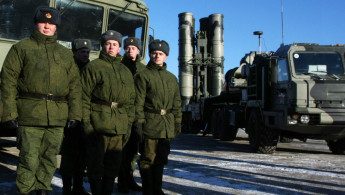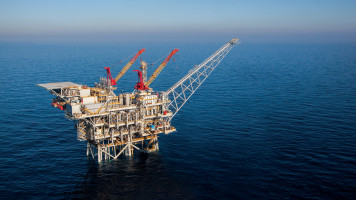Russia's missile sale to Iran 'a carrot and stick'
Russia's decision to deliver a S-300 missile defence system to Iran is sending multiple messages to Iran and the West, analysts have told the AFP news agency.
Reactions were mixed last Monday when the Kremlin announced its decision to lift the arms embargo against Tehran. It has not given a delivery date, but says it needs at least six months to complete production.
The announcement raised many questions due to Iranian involvement in conflicts in Syria, Iraq and Yemen. It also came as negotiations over Iran's nuclear programme are entering their final stage.
Israel on Tuesday said the decision would "increase Iranian hostility and undermine security in the region". The US also criticised Moscow's "unconstructive" decision.
Francois Heisbourg, the chairman of the UK's International Institute for Strategic Studies, downplayed Russia's decision.
"Announcing a lifting of the ban on delivering the shipment, and actually delivering it are two different things," he said.
Heisbourg said Iran and Russia had a "complex" relationship, and did not naturally trust each other. The two countries signed a $800m contract in 2007 to supply the missile system.
| The missile system will be 'old, but effective enough to protect against possible air raids' - Bablitskiy, PIR Centre |
However, in 2010 Russia refused to deliver the system due to UN sanctions. This angered Iran which demanded $4bn compensation.
Heisbourg likened the situation to the Mistral case, referring to the two amphibious assault ships France has sold to Russia, but refuses to deliver due to the Ukrainian crisis.
Russia has built Iran's only nuclear reactor at Bushehr and is negotiating to build others. This announcement secures its position as Iran's main supplier if it is allowed to restart its nuclear programme.
Heisbourg said: "The Russians do not want to help the West, but neither do they want to see a nuclear Iran."
The S-300 system is also important because it will make attackers "think twice", according to Andrey Bablitskiy from PIR Center, a think-tank based in Moscow.
He said the sale could create a regional balance of power, currently one-sided because other countries are better equipped than Iran.
Bablitskiy said the missile system is "old, but effective enough to protect against possible air raids". Israel has refused to rule out military action against Iran's nuclear facilities.
Jeremy Binnie, the Middle East editor of IHS Jane's Defence Weekly in London, said the announcement served two purposes - demonstrating to Tehran the advantages of sticking with the nuclear talks, while also making military alternatives more difficult for its opponents.
"It's a carrot to Iran. But it is also a stick against US and Israeli officials who say the military option is still on the table," he said.
This article is an edited translation from our Arabic edition.



